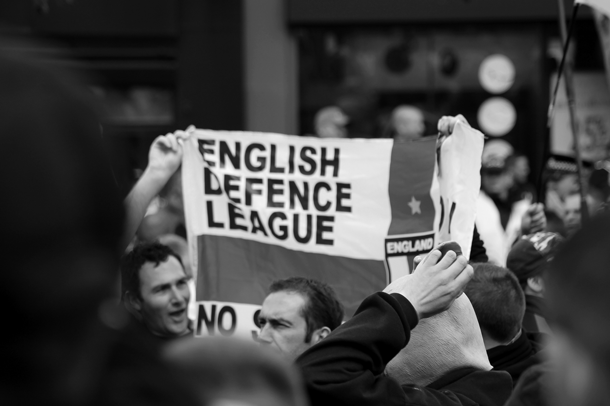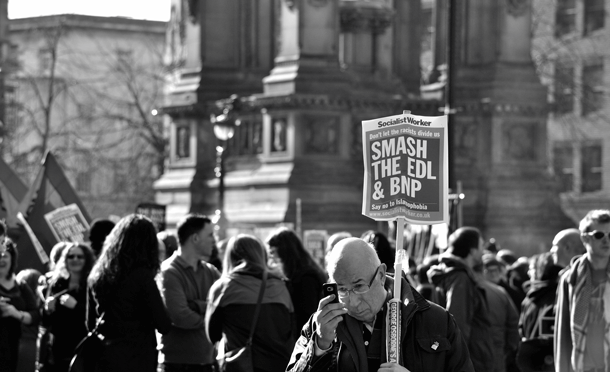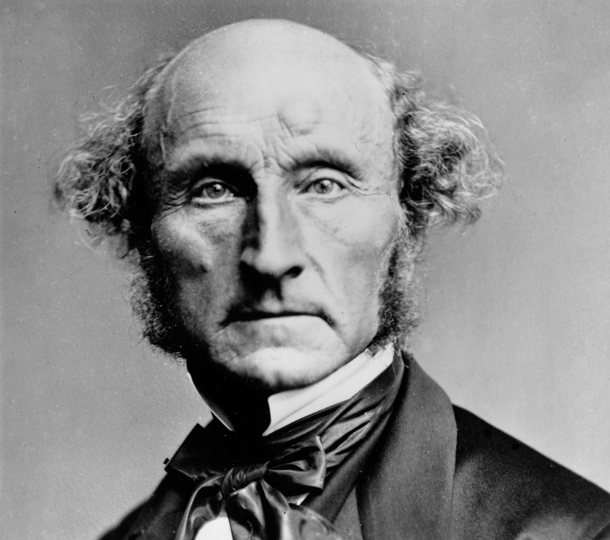
Isn’t it annoying when someone you don’t like steals all your best ideas? Due to a combination of cowardice and indifference, that's what's happening to free expression. That mighty cornerstone of democratic life is becoming the preserve of the populists. It’s time for liberals to wrestle it back.
The contours of this seem, prima facie, pretty straight forward. Free speech, with a few tightly defined exceptions, is vital in a liberal democracy. Upsetting or offending religious sentiment is not, and should not, be one of those exceptions. We should cherish and defend the right to free expression, and realise that democracies are noisy, chaotic places to live, where good and bad ideas clash. Its health depends on all citizens feeling they can present their views and argue them out fairly, otherwise disillusion and disengagement result.
Yet this is where liberals are losing. Free expression, in any meaningful sense, is more than the laws that uphold it. It frames attitudes and behaviours. Rights can be enshrined, but without exercise they atrophy. For free expression to produce its full personal and societal yield, differing opinions – especially those that are uncomfortable or difficult – should be constantly encouraged, warmly welcomed, sought out, and treated with respectful seriousness. In modern Britain it increasingly feels like we have the law (which is relatively good, a few bits of the Communication Act notwithstanding) but not the spirit of the thing. The liberals point to the law, but the spirit and vigorous practice has been ceded to the populists.
Free expression has both a moral and purposive value. Of course it’s vital to be able to express oneself, to realise the human need and right to speak one’s mind. But it is also a technical means for individuals or society to arrive at a clearer perception of the truth. The patron saint of this idea, and its best exponent, is John Stuart Mill. If we don’t allow our opinions to be “fully, frequently, and fearlessly discussed” he wrote in On Liberty, then that opinion will be “held as a dead dogma, not a living truth”.
For Mill it wasn’t enough to express an opinion: the true liberal had an obligation to test it, to actively seek out the alternative view, to grill it, interrogate it, to argue it out. And that is where today’s liberal falls short, preferring to close alternatives off rather than open them up. Freedom of expression is chaotic and dynamic – not easy and timid.
There are two conditions beyond the statute book that are necessary for this full free expression to flourish.
First, there can be no possibility of self-censorship. Whether it is fear of retaliation by gun-wielding radicals or fear of offending established opinion on a matter, self-censorship is the anathema of free speech. Citizens must be encouraged to say what they truly think. More: citizens should be encouraged to dissent. If opinion on a subject is set, disagreement should be sought out. Second – and related – citizens need to feel their opinion, once stated, will be listened to seriously and fairly. Not patronised or sneered at: but a welcome part of a debate or discussion even if others strongly disagree.

It’s pretty simple, really. But for all the recent JeSuisCharlie-ing and well-crafted legislation, we are some distance from anything approaching this, and drifting further away, becoming trapped in the suffocating grip of self-imposed censorship. As the on-point Kenan Malik recently argued, many liberals believe in self-censorship as moral commitment: "a belief that because we live in a plural society, so we must police public discourse about different cultures and beliefs, and constrain speech so as not to give offence’. Self-censorship as a moral imperative is a very dangerous thing indeed."
Worse, this moral commitment appears to have infected much of our cultural, political and educational life, the parts of society where free expression is most valuable. The idea has taken hold that slippery concepts like "appropriateness", "understanding", or even just "feelings", are legitimate limits on another’s liberty. Brendan O’Neil, in a recent article for the Spectator, wrote of the "Stepford Students" who "robotically utter the same stuff about being offended", their "eyes glazed with moral certainty" shutting down debates ranging from abortion to nationalism, because they think it offensive: "They insulate themselves from anything that might dent their self-esteem and, crime of crimes, make them feel ‘uncomfortable." (This all being then forced on nervous administrators with some manufactured outrage on social media).
Of course, most of us like to say we defend free expression even in its most aggressive form. After the Paris attacks, everyone was exclaiming how much they loved Charlie Hebdo. But est-ce que tu es Charlie, really? Because a lot of the people tweeting #JeSuisCharlie would never for a moment dare to criticise religion – especially Islam – for fear of offending, for fear of professional opprobrium from polite society, for fear of being thought "uncivil" or "inappropriate". And that’s become a problem. As David Aaronovitch argued in the Times following the murders, hardly any other newspapers were Charlie either: never publishing outrageous cartoons or criticising religion, which turned Charlie Hebdo into a blazing and lonely target. The real Charlies get it, while the rest of us, safely at home and comfortably non-controversial, get to feel like we are doing something by posting the thing on our timelines, demanding others take the risks we wouldn't ourselves. (And I include myself in that).
This is all made worse by the considerable efforts some people will go to be offended and be seen to be offended. Last year, “Twitter commentator” Mo Ansar campaigned to have Lib Dem PPC Maajid Nawaz de-selected for retweeting a picture of the prophet. Not because he (Ansar) was offended personally by the pics, mind you. Of course not! Mo is a liberal kind of guy. But he was offended that Nawaz didn’t think other people would be offended.
A lot of people appear to be desperate to be offended, because it gives them a nice feeling of righteous indignation, and, since victimhood seems to be increasingly a lazy proxy for desert, a shortcut to get your way. And each time we give into it, we’re further incentivizing it victimhood politics, like paying a hostage ransom.
I understand, of course, that free speech should, in a perfect world, be exercised with some respect for other people’s beliefs. But we don’t live in a perfect world, and Mill also explained why offensiveness should not be determined and protected by the law. Any vigorous criticism of one’s most cherished beliefs or convictions will, said Mill, always feel offensive and unfair to its target. Laws against it, therefore, would always be too restrictive. More interestingly, and rarely mentioned now, Mill feared that any effort by government to limiting offensiveness would always harm "marginal" groups – because anyone who vilified established orthodoxies will risk prosecution; while he who vilifies the marginal would be lionised.

Anyway, this all this leads in the same direction. It could be murders with knifes, or liberals with a weak constitution – the result it the same. As argued by Jonathan Chait, "The Muslim radical argues that the ban on blasphemy is morally right and should be followed; the Western liberal insists it is morally wrong but should be followed. Theoretical distinctions aside, both positions yield an identical outcome." This is why liberals have lost their position as free expression’s protector, because they quote the famous old maxim, but prefer to live by an inversion of it: If I broadly agree with what you say (considering it to be appropriate and generally inoffensive) I will defend (although only as far as the potentially embarrassing social media campaign against you) your right to say it.
And so who are today’s defenders of the more vivid idea of free expression, that chaotic, dangerous, and exciting free expression as imaged by Mill? It’s the populist right wing. Across Europe the populist right has been growing over the last 20 years or so: the Front National in France, UKIP, Pegida in Germany, Geert Wilder, you know the roll call of familiar names. Each has their own bugbears and idiosyncrasies but consistent across them all is an aggressive and often articulate defence of free expression.
Why is that? Because they are the groups and individuals that most often butt up against the soft and hard limits of free speech. It is UKIP supporters that are most often sneered at; it is the Pegida marchers who are dismissed as racists with hatred in their hearts. This is not to agree with their views, simply to acknowledge it is they who practically exercise freedom of expression, who feel most acutely its legal and social edges, and who subsequently come to value and fight for it. Liberals, by contrast, know what it means in theory: but without regular exercise, they have forgotten the practice.
“Fear has paralysed the police… if the police can take away my freedom, they can do it to you.” That’s Tommy Robinson, former leader of the English Defence League. "We must uncap our pens; we must speak words of truth. We are facing a determined enemy who is striving through all means to destroy the West and snuff out our traditions of free thought, free speech, and freedom of religion... we must not let the violent fanatics dictate what we draw, what we say, and what we read. We must rebel against their suffocating rules and thuggish demands at every turn.” That’s Geert Wilders leader of the PVV.
Take UK political parties’ webpages. On its front page, UKIP lists a handful of principles it believe in. One is “free speech and democracy”. It reads: “No to Political Correctness – it stifles free speech.” What simplicity!
Now take a look at Labour, where, after some digging, you'll find them restricted to repealing “The Tories Gagging Bill” because it “hits charities and campaigners hard, limiting their right to fight for important causes, while allowing professional lobbyists to escape scrutiny. And it has left expert organisations who have a vital contribution to make to public debate unsure about whether they are allowed to speak out. Governments should not be afraid of criticism or lively debate.”
Nor do the Tories say anything much, majoring instead on benefit cuts, EU referendum, immigration and the deficit.
For the Lib Dems, it’s “freedom and equality”. Nothing on free expression: rather Lib Dem achievements on equal marriage, ID cards, and the DNA database.
My point is not to say who is the more trustworthy, but rather who appears most willing to make free expression a point of principle. And that’s the great danger. According to research by the think-tank Counterpoint, many populist leaders use freedom of expression as a “frame”, as a useful way of demonising enemies and presenting themselves as courageous and outspoken, even if they don’t really believe it – and carrying with it policies and ideas that are really do not defend free expression at all; for example rank and aggressive xenophobia.
That’s why liberals need to wrestle back free expression. To do that means viewing the idea as far more than an abstract principle; but rather as something that is lived, demanding and defending free expression in principle as well as practice: welcoming to UKIP or Pegida or Islamists or whoever. To encourage their involvement in debate, to listening to them seriously without sneering even while disagreeing with them fervently. To create a society where people feel more than technically free to express their view, but where those views are actively sought. None of this means giving in to hate or bigotry or xenophobia either. Quite the reverse in fact. Free expression allows us to sharpen and re-inforce our views. In the very best lines of On Liberty, Mill reminds us why censorship works for no-one: “If a forbidden opinion is true, we lose the opportunity to learn of its truth. If a forbidden opinion is false, we lose the opportunity to remind ourselves why it is false.” So what are we afraid of?